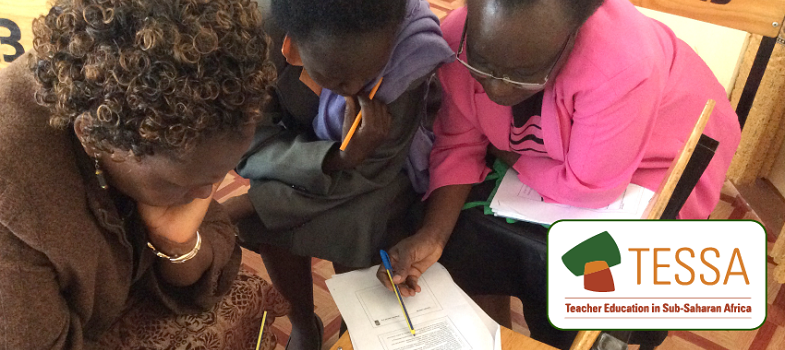3. Raising awareness of gender issues
There are many forms of abusive behaviour and it is girls and women who are more often the victims. This does not mean that boys cannot also be abused; just that girls and women have tended to have had a more passive role in society, while males have been more dominant.
If you are going to explore this area with your class, you will need to prepare very carefully and be able to support your pupils as some ideas may be very uncomfortable and challenging for them. You may also find that you uncover some incidences of abuse, and you must be prepared to support your pupils, sensitively and discreetly. Resource 4: Gender violence is an extract from a research paper discussing some of these issues in Ghana, which you could read to give you background knowledge.
You may not feel equipped to deal with this sensitive subject alone – so you could follow the lead of Mrs Yarboi in Case Study 3, who asked someone from a local NGO to come and assist with her class discussion on abuse.
Case Study 3: Using a local expert to help discuss sensitive issues
Mrs Yarboi’s Primary 5 class had been working for some weeks on gender stereotypes and how they can negatively affect girls’ progress in the classroom and in life. It had been a difficult time for Mrs Yarboi because the boys felt that they liked the status quo and did not see that it needed to be changed.
She decided to get in some expert help and contacted a local NGO who were working in rural development projects in their town. She had met a lady called Amina who was their gender specialist.
Amina came to the school and talked to the class about abuse. They identified that abuse can be mental as well as physical and sexual. Amina told the class of some stories of young people who had been abused by their parents, by other family members and even by people from their religious group. She also talked of ways in which these pupils had been helped and what organisations there are to help people. It made some of the pupils very upset that people can behave that way.
During the talk, Mrs Yarboi noticed that two girls started crying. After the visit from Amina, Mrs Yarboi asked the two girls if they would like to go and talk to Amina and she made appointments for them.
In the next lesson, Mrs Yarboi asked her pupils to write about abuse and explain their feelings about it. From this, she was able to see how much each pupil had understood and was able to see how they had reacted to the stories Amina told.
Key Activity: Organising a school event about gender issues
Having explored some issues about gender with your class, suggest to them that they share what they have found out with the rest of the school.
Ask them how they could do this. Could they:
- produce a play?
- do an assembly?
- write an information book?
- write a poem?
You could do more than one if you have a large class. Pupils could choose which group they join.
Once they have decided what they want to do, ask them to plan what to say and the best way to say it. Remind them to be sensitive to their audience and careful how they present their ideas.
Give them time to draft or practise what they are doing. When ready, allow them to present their play, book, poem or assembly to the class for constructive feedback, so that they can make any changes before they do the real performance or presentation to the school.
After the event, allow your pupils the opportunity to assess the impact of their actions.
Think how you can support your pupils and build on this task.
2. Using role play to explore gender differences



